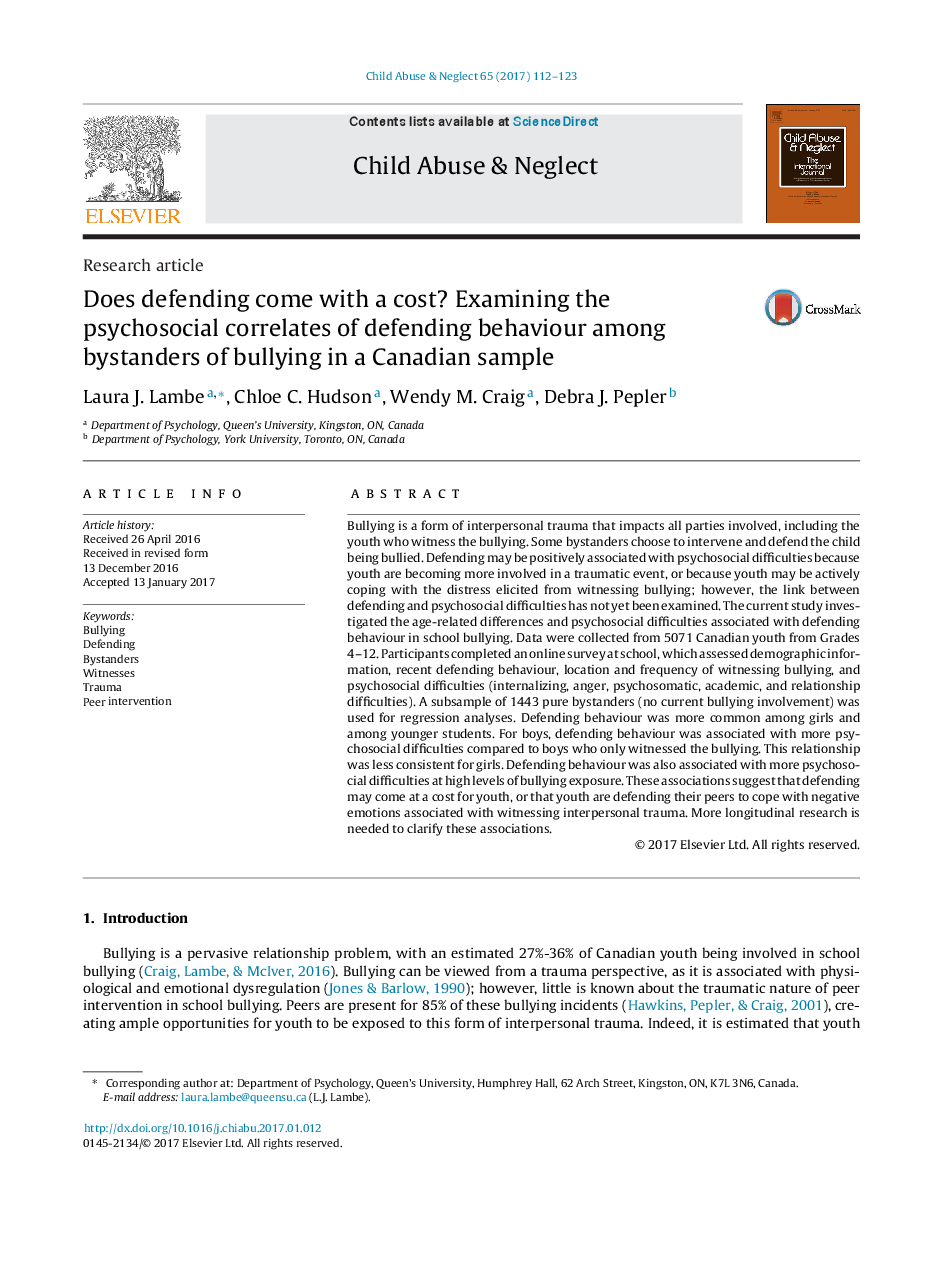ترجمه فارسی عنوان مقاله
آیا دفاع با هزینه است؟ بررسی ارتباطات روانی و اجتماعی دفاع از رفتار در میان افراد مورد آزار و اذیت در یک نمونه کانادا
عنوان انگلیسی
Does defending come with a cost? Examining the psychosocial correlates of defending behaviour among bystanders of bullying in a Canadian sample
| کد مقاله | سال انتشار | تعداد صفحات مقاله انگلیسی |
|---|---|---|
| 133288 | 2017 | 12 صفحه PDF |
منبع

Publisher : Elsevier - Science Direct (الزویر - ساینس دایرکت)
Journal : Child Abuse & Neglect, Volume 65, March 2017, Pages 112-123
ترجمه کلمات کلیدی
قلدری، دفاع کردن، بیگانه شاهدان، تروما مداخلات همکارانه،
کلمات کلیدی انگلیسی
Bullying; Defending; Bystanders; Witnesses; Trauma; Peer intervention;

